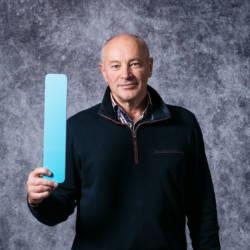
The FinDisc Trial is a soon-to-be launched randomized controlled trial (RCT) on the benefits and risks of microdiscectomy, one of the most common spinal surgeries in the world. FinDisc will mark the beginning of our second wave of placebo-surgery controlled trials – we have already completed the recruitment – and most of the follow-ups – of three previous placebo-surgery controlled trials (FIDELITY, FIMPACT and FIRST).
FinDisc will be a multi-centre trial, to be carried out in several University hospitals in Finland as well as some of the largest central hospitals.
What is the primary objective of the FinDisc trial?
We aim to determine whether microdiscectomy is an effective treatment for patients with persisting pain due to lumbar disc herniation (LDH).
Why is this trial needed?
Sciatica is one of the most debilitating types of pain with a lifetime incidence ranging from 10% to as high as 40%. Sciatica is most commonly caused by a LDH that compresses a spinal nerve root. It is associated with substantial direct and indirect costs as patients may become absent from work for a long period of time. LDH is usually managed nonoperatively but if symptoms persist beyond 6 weeks, surgery may be indicated.
Microdiscectomy is the current ”gold standard” surgery for LDH. In the surgical procedure, the spinal canal is entered and the herniated disc fragments that compress nerve root(s) are removed. There is a large variation in the incidence of LDH surgery around the world. In Finland, 3572 surgeries were performed for LDH in 2018.
Although microdiscectomy is one of the most commonly performed spinal surgical procedures, the evidence on its’ efficacy is limited. According to previous trials on microdiscectomy, surgery has modest short-term benefit over non-operative treatments, but the benefit vanishes over time. The most problematic issue of these previous trials comparing surgery to non-operative care is the high incidence of crossovers from non-operative care to surgery (~ 40%).
A very recent Canadian randomised trial comparing microdiscectomy with standardised non-operative care showed greater pain reduction at 6 and 12 months in patients treated with surgery than those who received non-operative care. This trial had no crossover problem up to the 6-month primary outcome assessment time point and provides the most convincing evidence – to date – to suggest a benefit of surgery over non-operative care for treating LDH.
However, the act of performing surgery itself has a profound placebo effect. A placebo surgical control group is thus considered particularly pertinent for surgically-treated conditions with subjective endpoints, as it distinguishes the treatment effect specifically attributable to the critical therapeutic element of surgery from the profound nonspecific effects.
Given the volume and the considerable variation of LDH-surgery worldwide, when combined with uncertain evidence of the benefit of surgery over non-operative care, we argue that the true efficacy of microdiscectomy must be studied using a placebo-surgery controlled design.
What is the study design?
FinDisc is a multicenter, prospective, randomized, placebo-surgery controlled trial assessing the efficacy of microdiscectomy. The placebo intervention will resemble microdiscectomy but exclude procedures to alleviate the compression over the nerve root (i.e., removal of the herniated disc material and other tissues potentially compressing the nerve root).
The trial is primarily designed to ascertain whether patients undergoing microdiscectomy will result in superior resolution of leg pain to placebo-surgery control group at 6-weeks post- surgery. Primary outcome is the resolution of leg pain and we will also carry out a responder analysis.
Where are we now?
The protocol of the trial will be submitted for Ethical review in late 2020




